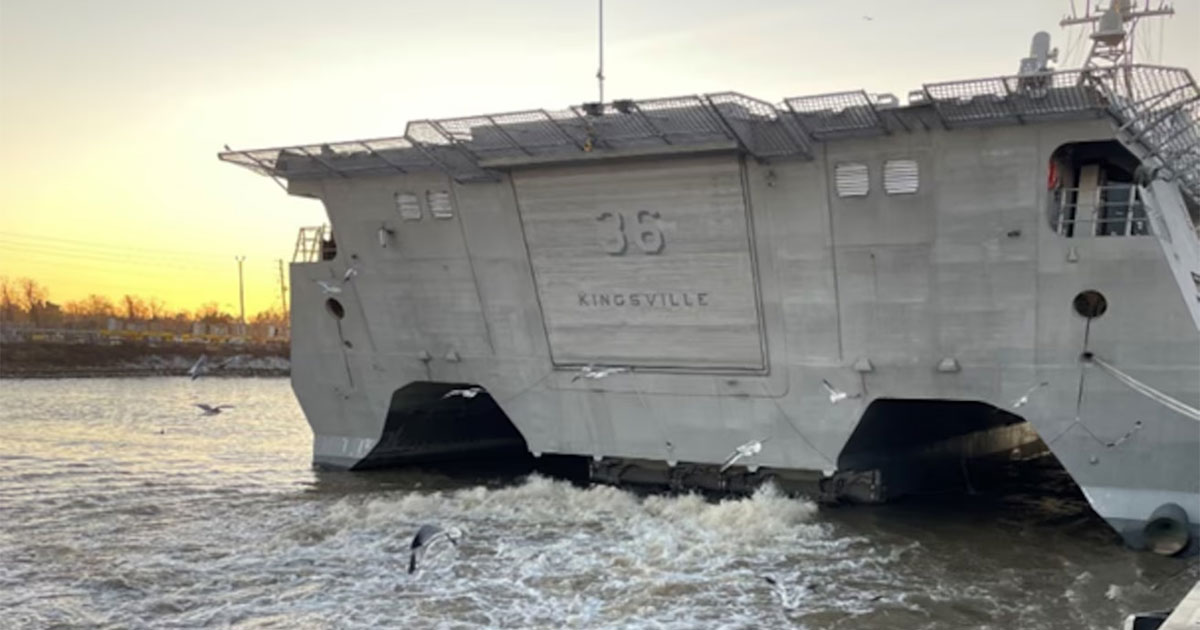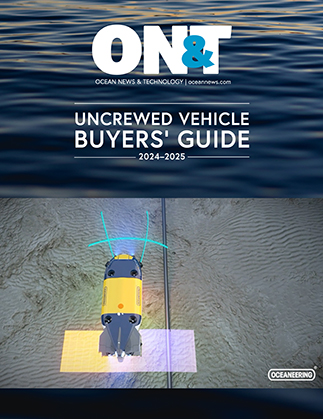The LCS class comprises fast, optimally manned, mission-tailored surface combatants that can operate in both near-shore and open-ocean waters to counter 21st-century coastal threats.
Kingsville successfully completed Acceptance Trials in February 2024, marking the last significant milestone before a ship is delivered to the Navy. She will be commissioned later this summer, and will be homeported in San Diego, California.
“The performance of Kingsville during this trial demonstrates a continuation of the standard of excellence in the LCS class as a whole. We are thrilled by the quality of the ship and the performance of our partners at Austal,” said Mr. Jonas Brown, deputy program manager of the LCS (PMS 501) program office, who was aboard LCS 36 throughout the trial events.
The USS Kingsville is a testament to the enduring partnership between Kingsville, Texas, and the Navy. That relationship traces back to 1942 when Naval Auxiliary Air Station Kingsville (NAAS) began serving as an auxiliary field for Naval Air Station Corpus Christi, supporting Navy flight training. In 1968, the airfield evolved into one of three key centers for Navy jet training operations.
Following Kingsville, the future USS Pierre (LCS 38) is the last Independence-variant LCS still under construction at Austal USA, as the LCS production line approaches its planned closure.
The LCS class consists of two variants, Freedom and Independence, designed and built by two separate industry teams. The trimaran-hulled Independence-variant team is led by Austal USA (for the even-numbered ships). The monohull Freedom variant is built by a team led by Lockheed Martin (for the odd-numbered ships).
The Program Executive Office for Unmanned and Small Combatants (PEO USC) and the LCS Program Office (PMS 501) lead the Navy’s efforts to integrate with joint, combined, manned, and unmanned teams to support forward presence, maritime security, sea control and deterrence missions worldwide.

